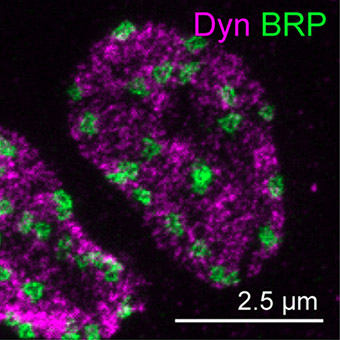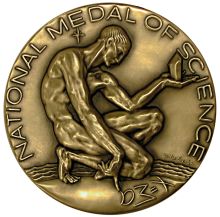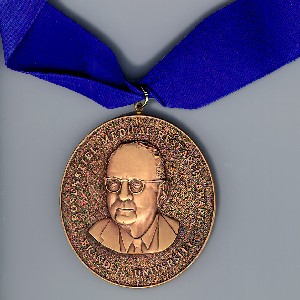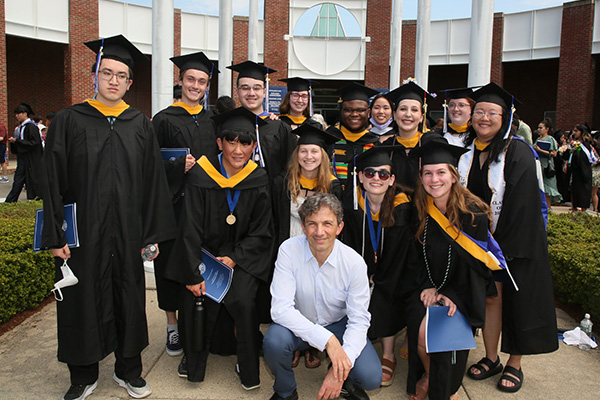The 53rd Rosenstiel Award for Distinguished Work in Basic Medical Research has been awarded to Wolfgang Baumeister for his pioneering work in the Development of cryo-electron tomography and for his insights into the structures and functions of the protein quality control machinery.
Dr. Baumeister’s visionary drive to find a way to study molecular machines in their native contexts has made it possible to study cells in a close-to-living state in three dimensions with resolution approaching the sub-nanometer range. This is a revolutionary advance that will allow us to understand the cellular milieu in a way never before possible. In particular, his lab has explored in near-atomic detail the proteasome complex that is responsible for the targeted degradation of proteins, and has led the way to the study of other macromolecular assemblies and their arrangement within the cell.
Professor Baumeister is Director Emeritus and Scientific Member of the Max-Planck Institute in Martinsreid, Germany. His laboratory has been at the forefront of the identification and structural analysis of the molecular machinery involved in both the proper folding and the degradation of proteins. Insights from his laboratory about a novel structural motif in some proteases has led to the development of inhibitors that block the proliferation of several cancers. More recently, his ability to locate precisely individual protein structures has made it possible to begin the description of the “molecular sociology” of proteins in specific subcellular environments such as neurons. Professor Baumeister is a Member of the German Academy of Sciences Leopoldina, a Foreign Honorary Fellow of the American Academy of Arts and Sciences, and a Foreign Member of the U.S. National Academy of Sciences. He is a recipient of many awards, including the Alexander Hollander Award in Biophysics and the Louis-Jeantet Prize for Medicine. He is a member of the Chan Zuckerberg Initiative Steering Committee and Editor-in-Chief of Biochemical and Biophysical Research Communications.
Dr. Baumeister will present his Rosenstiel Award lecture at Brandeis on April 18, 2024.
The Rosenstiel Award has had a distinguished record of identifying and honoring pioneering scientists who subsequently have been honored with the Lasker and Nobel Prizes. In 2022, the Rosenstiel Award was presented to Christine Holt and Erin Schuman. In 2021, Robert Singer was honored for his studies of the ways messenger RNAs are transcribed and transported to specific locations in the cytoplasm of cells, often far from the nucleus. In 2020, the Rosenstiel Award was the first of now many prizes conferred on Katalin Karikó and Drew Weismann for their pioneering work in the development of RNA vaccines. Karikó and Weismann received the 2023 Nobel Prize in Physiology or Medicine. In 2019, David Julius and Ardem Patapoutian were honored for their identification and characterization of ion channels that enable the perception of touch, temperature and pain. Julius and Patapoutian were the 2021 Nobel laureates in Physiology and Medicine. In 2018, Stephen C. Harrison was honored for his elucidation of protein structures using x-ray crystallography. In 2017, Titia de Lange was named for her pioneering work on how cells preserve the integrity of their chromosomes. In 2016, Susan Lindquist was cited for her work on the association of protein aggregation and neurological disease. In 2015, Yoshinori Ohsumi was the recipient, for his description of protein degradation through the process of autophagy. Ohsumi was awarded the Nobel Prize in 2016. Forty of 95 Rosenstiel Award winners have subsequently been awarded the Nobel Prize in Medicine or Physiology or in Chemistry.
A full list of awardees can be found on the Rosenstiel Award website.









